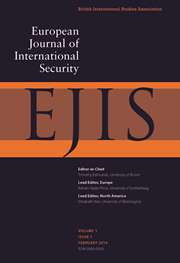Next week (28-29th of April), I will be hosting a small workshop on current research on piracy and maritime security. The workshop titled “New Voices in Piracy Studies” brings together 10 junior researchers from across Europe working on projects in the field. In addition Dr. Marcus Houben (former head of the support team for the EEAS presidency of the Contact Group on Piracy off the Coast of Somalia) and Dr. Anja Shortland (Kings College) will give keynotes and act as discussants in the debate.
The background for the event is that piracy off the coast of Somalia is contained, but not eradicated. West Africa and Southeast Asia continue to see high levels of piracy. Piracy studies has emerged over the last decade as a trans-disciplinary project that is geared at theorizing and understanding the phenomenon of piracy as well as studying the institutional responses to it. As a field piracy studies is linked to various other concerns, such as those in maritime security, criminology, or global governance. At the event we will discuss ongoing research on contemporary piracy and the responses to it, as well as related maritime security issues. The workshop aims at addressing three particular questions, that is,
1) To identify the gaps in our understanding of piracy (and maritime security threats) and the response to it
2) To outline how studies of piracy can contribute to the wider debates in maritime security, international security, international relations or international law
3) To discuss how research can contribute to the policy discussion on the responses to piracy and other maritime security challenges.





